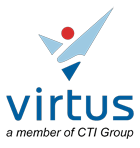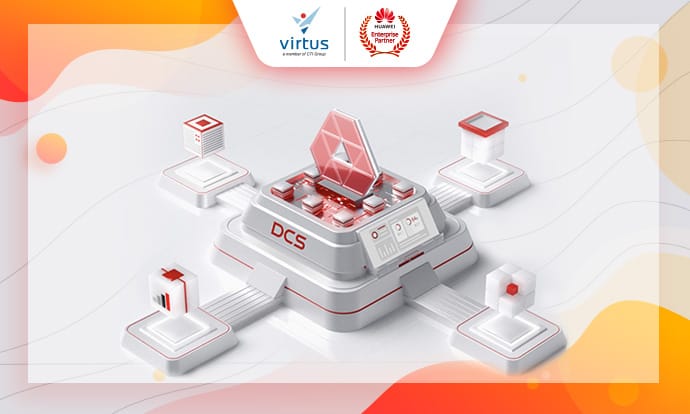Data centers have long served as the backbone of corporate IT infrastructure, traditionally operating from centralized locations housing rows of servers, complex hardware, and dedicated rooms to ensure stability and security.
However, with the evolution of technology and increasingly dynamic business needs, the conventional data center model began facing challenges. The advancement of cloud computing initiated a major transformation, allowing for more flexible and decentralized data processing.
This is where Data Center Virtualization comes into play, offering a modern solution by eliminating dependence on rigid physical infrastructure. But what exactly is Data Center Virtualization, and how can this concept benefit businesses? Let’s explore further.
What is Data Center Virtualization?
Data Center Virtualization is a technology that transforms physical hardware into flexible and cost-effective virtual resources. With virtualization, a single physical server can run multiple applications and operating systems simultaneously, optimizing space, energy, and physical equipment usage.
This technology enables companies to scale up quickly, as server capacity can be adjusted without adding physical hardware. Additionally, data and applications can be easily moved between virtual servers, facilitating system recovery in the event of a disruption.
How Does Data Center Virtualization Work?
Data Center Virtualization operates by separating hardware resources from software, allowing servers, storage, and networks to function as independent virtual units. Here are the general steps in the process:
1. Hypervisor
The hypervisor is the key component of virtualization. It is software installed on physical hardware that acts as a “manager” between the hardware and virtual machines (VMs). It allows multiple VMs to run on a single physical server without interfering with each other, so each VM functions like a separate server with its own operating system and applications.
2. Virtualized Resources
Once the hypervisor is running, resources such as CPU, RAM, storage, and networks are separated from physical hardware and allocated to VMs as needed. Each VM receives a portion of the resources based on its configuration and can be managed independently.
3. Management and Orchestration
Management software often accompanies this virtualization process, simplifying the management of VMs, performance monitoring, and resource allocation. With this technology, organizations can quickly add, remove, or migrate workloads between virtual servers, improving efficiency and reducing downtime in the event of failures.
Read More: Find Out How Virtualization Increases the Efficiency of Managing Complex Digital Infrastructure
How to Manage Virtual Data Centers?
Managing virtual data centers begins with using a centralized management platform that allows administrators to control various virtual resources from one dashboard. Platforms such as VMware vCenter or OpenStack enable IT teams to create, monitor, and manage VMs, networks, and storage efficiently.
The next step is implementing automation and orchestration for routine tasks such as data backups, software updates, and recovery in case of failures. Orchestration tools like Ansible or Kubernetes are commonly used to manage these processes in virtual environments. With automation, data centers can adjust workloads or increase capacity quickly without human intervention, reducing the risk of errors and improving operational efficiency.
Lastly, performance and security monitoring become critical in managing virtual data centers. Through real-time monitoring, IT teams can track CPU, memory, and network usage to detect and prevent performance issues. On the security side, protections such as virtual firewalls, encryption, and multi-factor authentication (MFA) are essential to safeguard data from cyber threats.
Key Considerations for Data Center Virtualization Implementation?
(alt text: Apa Saja yang Perlu Dipersiapkan dalam Implementasi Data Center Virtualization)
First, companies need to ensure their infrastructure is ready. This includes checking whether existing hardware, networks, and storage can support virtualization without degrading performance. Additionally, it is important to ensure that the hypervisor and management platforms used are compatible with existing infrastructure to avoid integration issues during the virtualization process.
Security is also a crucial aspect of virtualization. Virtualization expands the potential security risks as more virtual devices are connected to the network. Therefore, strong security policies are necessary, including network segmentation, data encryption, and MFA to protect sensitive data.
Finally, companies need to consider optimal capacity management and scalability. Virtualization allows data centers to adjust capacity quickly, but careful planning is still required. With support from automation and orchestration, businesses can manage workloads more efficiently without adding significant physical hardware Solutions like Huawei DCS can greatly enhance flexibility and capacity management, responding more effectively to dynamic business needs.
Huawei DCS: A Reliable Data Center Virtualization Solution for Your Business
Huawei Data Center Service (DCS) is a Data Center Virtualization solution offered by Huawei that aims to provide high performance, efficiency, and flexibility through virtualization technology. Huawei DCS enables companies to build and manage data centers more flexibly, efficiently, and with greater scalability, supporting various applications and infrastructure that change according to business needs.
DCS is also equipped with advanced features and technologies designed to meet the needs of businesses, providing greater control over resource allocation and workload management. Below is a table summarizing the key features, benefits, and Unique Selling Points (USP) of Huawei DCS:
| Huawei DCS Features | Unique Selling Points of Huawei DCS |
| Infrastructure Virtualization | High Performance: Handles intensive workloads with high performance. |
| Centralized Resource Management | Cost Efficiency: Reduces operational and maintenance costs. |
| Integrated Security | Flexibility: Adjusts resource allocation based on business needs. |
| Scalability Capability | Open Ecosystem: Can integrate with third-party systems and applications. |
Advantages of Huawei DCS
Lightweight and Flexible
Huawei DCS allows businesses to maximize their existing infrastructure without the need for additional hardware. Its flexibility enables quick capacity adjustments based on changing business needs, reducing costs and improving efficiency.
Agile and Efficient
With automation and orchestration, Huawei DCS makes data center management more agile and efficient. Routine tasks such as updates and backups can be performed without manual intervention, saving time, reducing errors, and enhancing operational performance.
Intelligent Management
Using AI and Machine Learning for automated monitoring and analysis, Huawei DCS detects issues and provides proactive recommendations. This helps maintain optimal performance without manual intervention, reducing downtime and maintenance costs.
Diversified Ecosystems
Huawei DCS supports an open ecosystem, enabling integration with a variety of third-party applications and systems. This provides businesses with the flexibility to choose the best solutions without being tied to a single vendor, ensuring efficiency and compatibility across multiple platforms.
Start Your Data Center Transformation Journey with Huawei DCS at Virtus
At Virtus, we understand the importance of digital transformation in today’s rapidly evolving business world. We are committed to helping you implement advanced Huawei DCS solutions that enable your company to build a more efficient, secure, and future-ready data center. As an authorized Huawei distributor in Indonesia, Virtus is ready to be your trusted partner in optimizing your IT infrastructure.
Our team of experts at Virtus will work with you to conduct an in-depth analysis of your company’s needs and current infrastructure. We understand that every company has unique requirements, which is why we design tailored Huawei DCS solutions that can be seamlessly implemented, aligning with your business goals and challenges. We are committed to offering relevant recommendations and easy-to-adopt solutions to ensure your company’s long-term success.
After the consultation phase, Virtus will support implementation with a structured and efficient approach. As an authorized Huawei distributor, we have direct access to the best software and hardware available, ensuring that each component functions optimally. We also provide continuous technical support and responsive customer service to ensure your data center’s performance remains optimal.
As part of PT Computrade Technology International (CTI) Group, Virtus has built a strong reputation through its commitment to excellent service, high responsiveness, and reliability, supporting your company’s digital transformation journey with innovative Huawei DCS solutions. Click here to be contacted by Virtus’ sales team.
Author: Ary Adianto
Content Writer, CTI Group



























